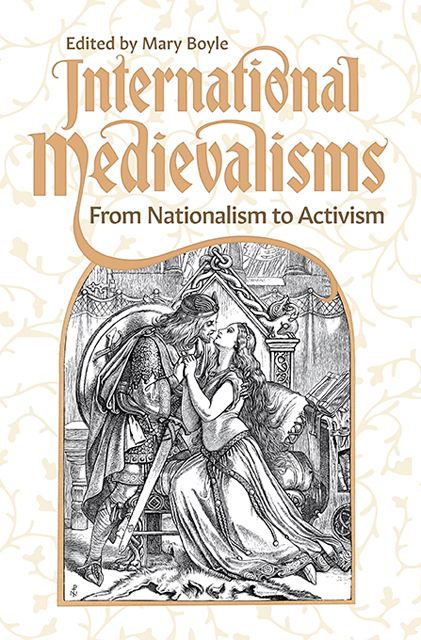8 - ‘The old magic of the mind’: The Influence of Wales and Medieval Welsh Literature in John Cowper Powys’s Maiden Castle
Published online by Cambridge University Press: 09 June 2023
Summary
The ever-mysterious prose-epic of Wales, entitled Pedeir Keinc y Mabinogi, which relates in its ‘four branches’ the strange story of Pryderi the son of Pwyll … is literally haunted by all manner of magical mixings up – I can use no other expression – of life and death and death with life; so that on all sides we grow aware of half-alive things and of half-dead things, of life vanishing as the death-mists rise or fall, of birth appearing even from the lap of death.
A fixation with Wales, its literature and mythology, appears to have grown in British novelist and philosopher John Cowper Powys (1872–1963) before he ever began to write serious fiction. Born in a small village in Derbyshire before moving to a vicarage at Montacute, Somerset, Powys was the eldest of eleven talented children (including Llewelyn and Theodore Francis, both writers), and was assured by his father the Reverend Charles Francis Powys of the family's Welsh ancestors, or what he called the ‘Princes of Powysland’. Lack of genealogical evidence, however, did not dissuade Powys from continuing to maintain that he was descended from ‘an old Welsh family long ago established in the town of Ludlow in Shropshire in what were formerly called the Welsh “Marches”’. Whether or not the unsubstantiated claim contained any truth is immaterial to the effect it had on his world view and subsequent fiction; Powys's fascination with Welsh mythology deepened as he began to write his ‘Wessex’ novels – in particular the Dorchester-set Maiden Castle (1936) – providing him with the necessary tools to develop his personal ‘magical view of life’ as an opposing force to modern-day ‘transient scientific theories’.5 ‘[The] very act of writing stories’, writes Morine Krissdottir, ‘constituted a ritual’ for the author; in the guise of ‘magician’, Powys would come to construct a spiritual system for himself wherein Wales and its mythology might be reshaped to serve his own personal philosophy. In this sense, this chapter argues that Powys's romanticized and highly individual response to medieval tradition in Wales, influenced by the then-outdated theories of John Rhŷs, which will be discussed below, represents a decoupling of Welsh mythological texts from their historical reality.
- Type
- Chapter
- Information
- International MedievalismsFrom Nationalism to Activism, pp. 127 - 140Publisher: Boydell & BrewerPrint publication year: 2023



